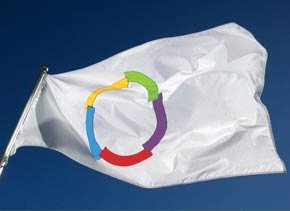French elected representatives in Parliament count for plums
Few present, not very competent, not very studious… the qualifiers with regard to our compatriots in the European Parliament are hardly laudatory. Justifiably it seems
(B2) Whatever the nationality of the interlocutor or his function, the observation is the same. " The French in the European Parliament count for plums ". The explanation? Easy! Most of the elected tricolors are reluctant " to plunge their hands into community sludge ". A caricature. Not so much! Three indicators are enough to corroborate this comment.
First clue: the presence. The French rank second to last for their attendance at plenary sessions; only the Italians exceed our absenteeism. Without following the example of the best — Gérard Caudron (dissident socialist), Christine de Veyrac (Ump), Gérard Onesta (Greens) or Françoise Grossetête (Ump) — who make it a point of honor to attend all the sessions, the most MPs, however, are quite serious. But some very bad students - Charles Pasqua, Thierry Jean-Pierre or Marie-France Stirbois for example - bring down the average.
Second clue: reports. Physical presence is not, in fact, an essential criterion. Where the deputy has the best capacity for influence, and can show his know-how, is the report. However, according to a study by the Medef, there is no photo. When a Frenchman writes a report, his British or Germanic counterparts write three, the Spaniards two. Even the Italians do better with a ratio of 1,5 per MP. Easy! 38 deputies wrote nothing, during this legislature, on the approximately 1300 texts published by the Parliament. The icing on the cake, the reports that matter, those that have an impact, can be counted on the fingers of one hand: Joseph Daul in agriculture, Gilles Savary on rail liberalization or Bernard Poignant on maritime safety. A few other deputies have certainly been turbulent – Catherine Lalumière on defence, Fodé Sylla on fundamental rights, Philippe Herzog on public services. But borrowing fine principles, their work remained poste restante.
Third clue: key positions. The French hold the presidency of only two of the 17 parliamentary committees - Rocard for Culture and Daul for Agriculture -. And these are not the most important. They occupy only two coordinator posts with the Socialists, half (!) in the European People's Party. However, the coordinator fulfills a pivotal role: he chooses the rapporteurs, reconciles the positions... A logical consequence when one examines the distribution of the French in Parliament. Atomized in all political groups - they hold the record for dispersion - they are important in weak and poorly endowed parties (sovereignists, communists and non-registered), and in the minority in those that count (socialists, liberals, conservatives), which make majorities. Moreover, they are less present than their Anglo-Saxon counterparts in the economic, social or industrial commissions.
Finally, they remain the champions of accumulation. Where there are only 10 German and 4 English cumulard deputies, the French line up 29 deputies who have another elective mandate. This might explain that…
Nicolas Gros Verheyde
Learn more: Read » the European Parliament: a challenge for French influence », a study by the Robert Schuman Foundation, by Yves Bertoncini and Thierry Chopin.
Consult the unofficial but useful site, Europarliament, to observe the presence of the deputies.

